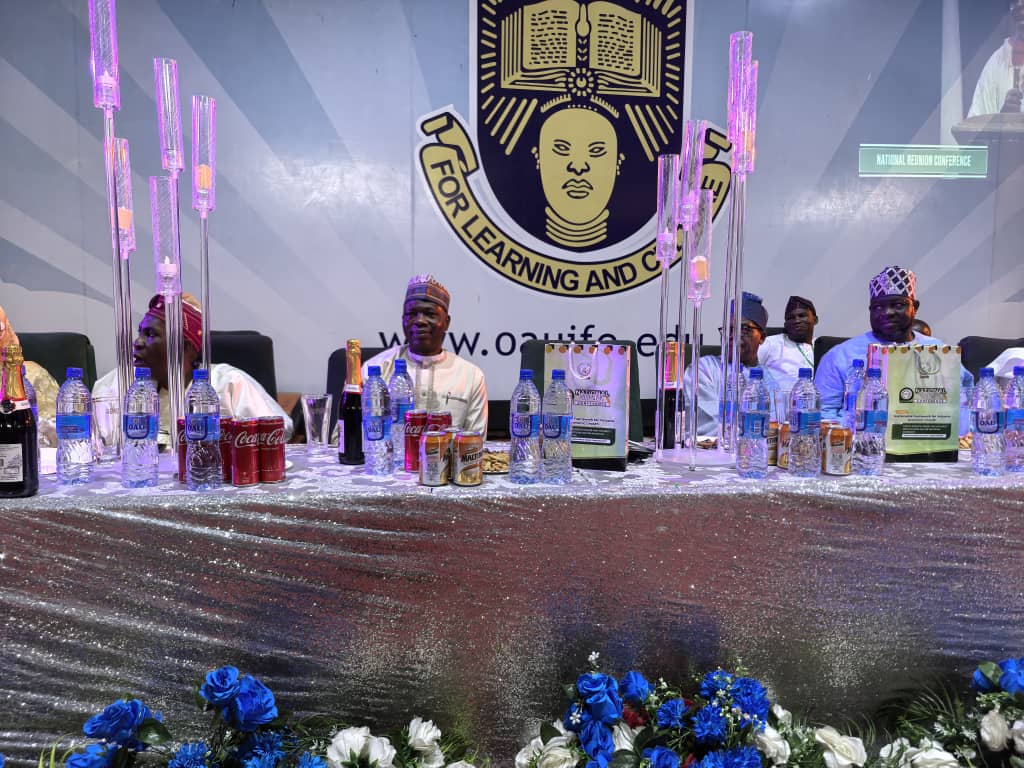CGC Adeniyi Champions ‘Nigeria First’ Strategy to Enhance Trade and Fortify National Security

The Comptroller-General of Customs, Bashir Adewale Adeniyi, has called for the institutionalisation of a ‘Nigeria First’ initiative to serve as a central pillar in enhancing cross-border trade and national security.
He made this call during a keynote lecture delivered at the annual conference of the Obafemi Awolowo University Muslim Graduates’ Association (UNIFEMGA) in Ile-Ife, Osun State.
Speaking on the topic “Cross-Border Trade and Security Implications on the Nigerian Economy: Taking Advantage of Global Trade Dynamics,” CGC Adeniyi stressed the urgent need for a symbiotic relationship between trade facilitation and national security.
“Nigeria’s economic prosperity hinges delicately on our ability to strike an optimal balance between security imperatives and trade facilitation,” he stated, pointing out that Nigeria’s total trade volume had soared to N196.94 trillion in 2024 – an impressive 179.3% rise from the previous year – despite persistent security threats along the country’s borders.
Highlighting the revenue performance of the Nigeria Customs Service (NCS), Adeniyi revealed that the Service collected a record N6.1 trillion in 2024, surpassing its target by 20.2%. He described this achievement as a reflection of innovation and institutional resilience amid a challenging operational landscape.
Addressing the regional security landscape and its ramifications for trade, the Customs chief drew attention to specific threats across the country. In the Northeast, he said insurgency continues to disrupt traditional trade corridors, though global partnerships – particularly with the World Customs Organisation’s Project Securité par Collaboration (SPC++) – have fostered adaptive trade frameworks suitable for conflict-prone zones.
In the Northwest, he decried the scourge of banditry and kidnapping, which he said have severely impacted mining operations, while rampant cattle rustling has crippled the livestock value chain, hurting industries such as meat processing and leather production.
Turning to the Southeast, Adeniyi underscored the trade disruptions caused by secessionist agitations, particularly in industrial hubs like Aba, Onitsha, and Nnewi. In the Southwest, he flagged the smuggling of petroleum products, arms, and restricted goods as a severe concern.
He disclosed that contraband worth N35.29 billion was intercepted in 2024, with additional seizures valued at N7.7 billion recorded in the first quarter of 2025.
“These regional security challenges present Nigeria with a choice: remain trapped in a cycle of reactive responses or transform our hard-earned expertise into strategic advantage within the AfCFTA framework,” he asserted.
As part of the Nigeria First initiative, CGC Adeniyi revealed that the Customs Service had embraced the local procurement of operational vehicles to promote indigenous manufacturing and conserve foreign exchange. “All operational vehicles purchased by the Nigeria Customs Service this fiscal year were sourced from Nigerian auto plants,” he disclosed.
He also unveiled a three-tier roadmap for securing and optimising border trade. Short-term plans include the modernisation of key border posts such as Seme-Krake (Benin), Jibia-Maradi (Niger), and Mfum-Ekok (Cameroon).
Mid-term strategies involve establishing secure trade corridors fortified with surveillance and rapid-response capabilities, while long-term plans aim to create Special Economic Zones in border communities to stimulate economic activity and reduce smuggling.
Reacting to global trade headwinds, including a recent 14% retaliatory tariff imposed by the United States on Nigerian non-oil exports, Adeniyi called for urgent diversification and innovation.
He urged Nigerian businesses to fully tap into the $3.4 trillion African Continental Free Trade Area (AfCFTA) and adopt the Pan-African Payment and Settlement System (PAPSS), which facilitates intra-African trade using local currencies.
“Through systematic application of these principles, Nigeria can establish itself as the secure gateway to West African markets, leveraging security investments to strengthen our economic position in regional and global trade,” he concluded.
The keynote address was delivered in the presence of notable personalities, including the Governor of Osun State, His Excellency Senator Ademola Adeleke; the Ooni of Ife, His Imperial Majesty Oba Adeyeye Enitan Ogunwusi; and the Vice Chancellor of Obafemi Awolowo University, Professor Adebayo Simeon Bamire.







